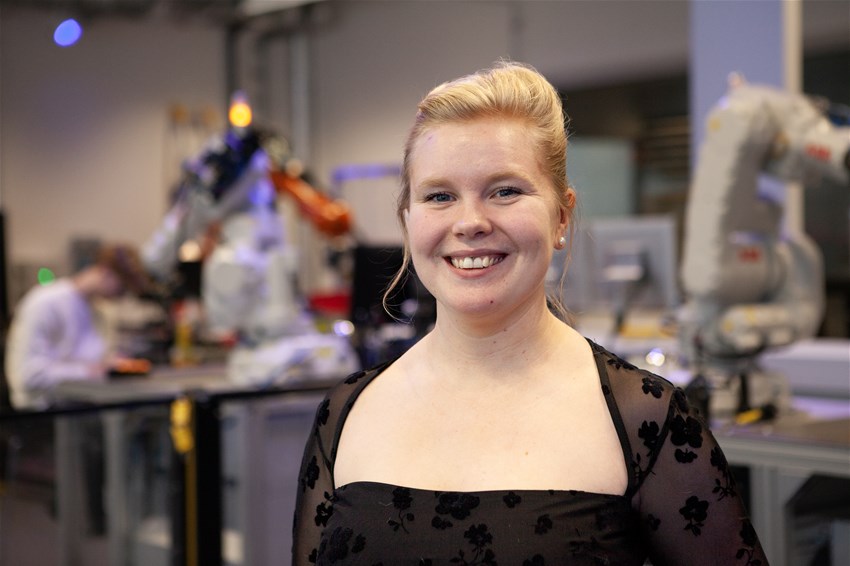"The industry must look beyond digital technology."
21 Dec 2023
In an era of rapid technological development, Swedish manufacturing companies are exploring how to adapt to the new digital age. A new thesis from University West highlights how social aspects play a crucial role when companies take steps toward embracing this new technology.

Swedish companies are facing a transformative period where the role of technology is becoming increasingly central. One challenge for companies is to balance the interaction between humans and technology in an increasingly digitized industry. Companies tend to primarily focus on technological advancements, risking overlooking the human-centered aspects.
To streamline and strengthen competitiveness, production and several support functions are becoming increasingly digitized. Changed roles and work methods await everyone working within the manufacturing industry. But how does one implement a digital transformation sustainably?
Looking beyond technology
A thesis by Linnéa Carlsson, a doctoral student in informatics specializing in Work Integrated Learning, examines this phenomenon and precisely points out that it's not just about machines and digital technology—the human factor is crucial.
The thesis explores how companies navigate between Industry 4.0 and entirely technology-driven efficiency and the emerging Industry 5.0 where humans and the environment are increasingly in focus. The result? An insight that technological progress is not just about the digital but also about the social.
- It's about looking beyond the technology. Shaping the new digital era is also about shaping relationships, understanding common goals, and breaking down old structures, explains Linnéa Carlsson.
Three social aspects are crucial
The thesis is based on studies of several medium-sized industrial companies. Interviews with managers and leaders, such as production managers and operations managers, have been conducted, along with group discussions involving personnel like operators. The results highlight three key factors and social aspects that influence how companies adapt to new technology. These aspects involve:
- looking beyond digital technologies
- formalizing a shared understanding
- transcending organizational structures
What emerges is the importance of pausing and reflecting on why one is digitizing.
- There's a sense of 'must,' that 'we must digitize to keep up,' and the purpose and goals of digitization aren't always clear, says Linnéa Carlsson.
She suggests that creating a common understanding and breaking down hierarchies will be crucial for a smooth transition phase for companies. Additionally, speaking the same language is important for comprehension. Discussing and clarifying how the implementation will impact the company and its various departments are essential.
- Each company's journey into the digital era is unique. It's about understanding and reshaping the company's own ways of working and thinking, says Linnéa Carlsson.
She argues that the organizational structure can be a hindrance and when introducing new technology, the organizational boundaries become less significant and may need to change.
Highlights the human dimension
In conclusion, this research highlights that the human dimension of technology's influence on Swedish companies is significant. Understanding and embracing this aspect could be the key for companies striving to succeed in the rapidly changing technological world.
- I hope that my results can serve as a basis for discussion and reflection for managers and leaders. My experience is that often the value of social aspects is overlooked. It's about adapting the business AFTER rather than TO," says Linnéa.
She continues:
- I also hope that the thesis can contribute to creating a deeper understanding of how industrial digitization can benefit from human aspects and that it's a prerequisite for success.
A post-doc is waiting
Linnéa Carlsson defended her thesis on December 20 and will continue to research within the same field over the next two years. She will be associated with GKN Aerospace in Trollhättan and Siemens in Finspång, examining Industry 5.0 and its significance in Sweden and how the industry can address the social aspects of industrial digitization. A post-doc project funded by the KK Foundation.
For the thesis: "Social Aspects of Strategizing Industrial Digitalization"
Contact: Linnéa Carlsson, PhD in informatics specializing in Work Integrated learning, University West, linnea.carlsson@hv.se , +46 701-83 51 99


